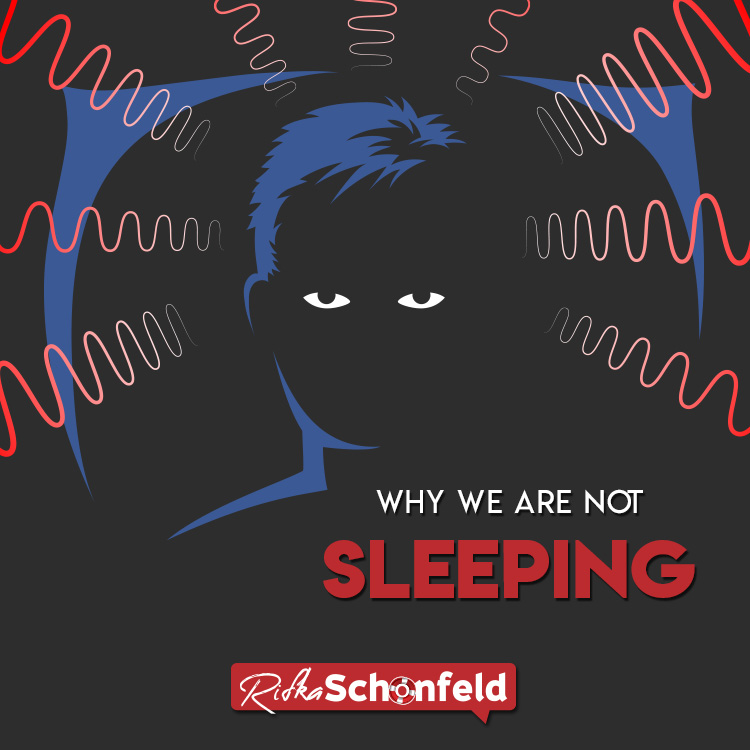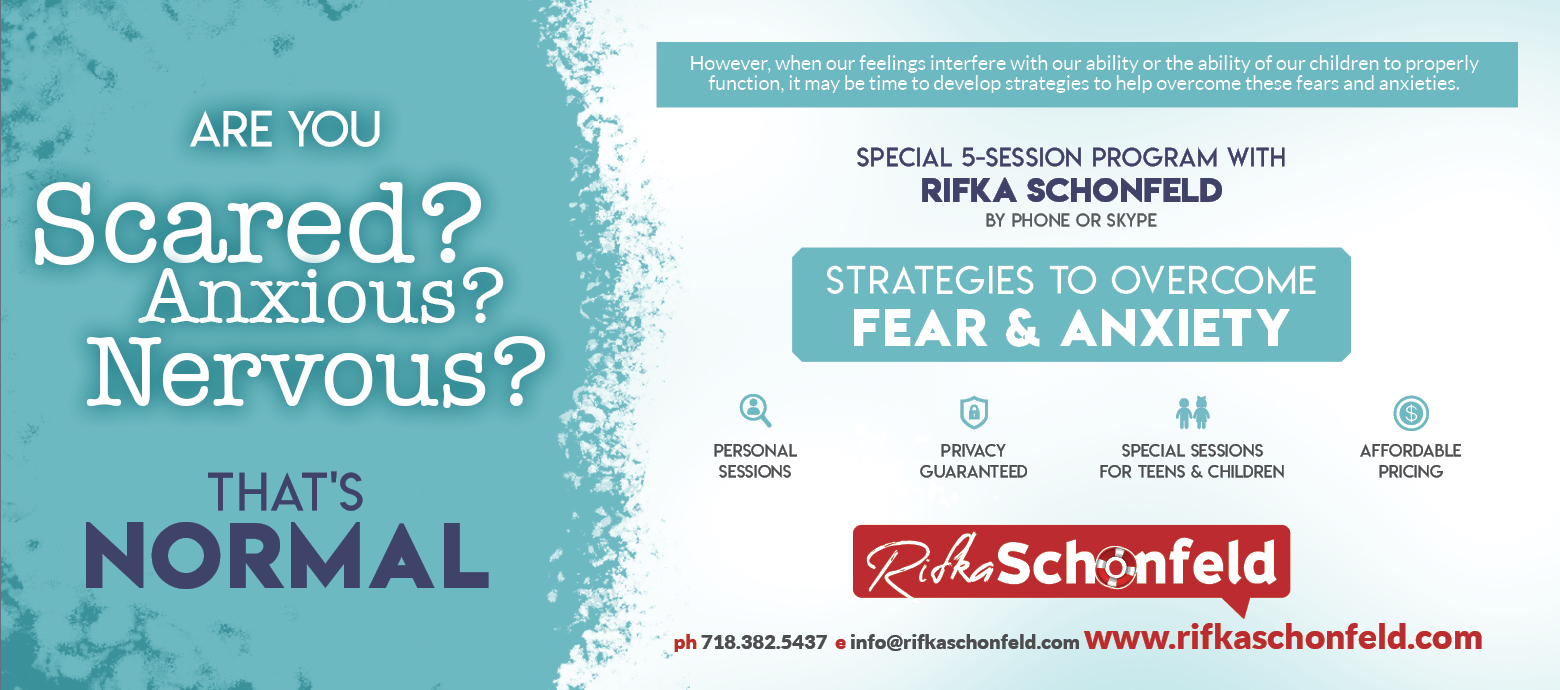Why We Are Not Sleeping…
- rifkaschonfeld
- April 22, 2020
- 0 Comments

Why We Are Not Sleeping…
In the midst of the COVID-19 crisis, many of us find ourselves lying in bed at night, urging ourselves to just… go to sleep! We try to clear our heads of the endless bad news, the plans for making tomorrow a bit easier, and the thoughts about our loved ones who we are separated from indefinitely. Sometimes our thoughts or anxiety keep us awake, but sometimes it is something else. So, how can we, especially in these anxiety-producing times, get the sleep we need to function the next day?
First, let me go through the ways that we can all improve our sleep regardless of special circumstances:
- Keep your room cool. Your body temperature changes as you fall asleep – your core gets cooler and your hands and feet get warmer. Keeping your room cool will allow your temperature to drop to begin signaling to your body that it is time to sleep. Taking a warm shower or bath before bed can also help indicate that it is time for sleep as your body temperature begins to cool from the shower.
- Create a sleep schedule. With the virus, it has been hard to maintain a steady schedule – after all – why wake early if there is no pressing need? There actually is a need and it has nothing to do with minyan, work, or school. It has to do with a schedule that your body recognizes as day and night. It is definitely okay to shift your schedule to later but creating a schedule will help you sleep better. Find 1-2 hour window in which you generally go to sleep and then find the window 6-8 hours later that you generally wake up. Try to stick to this schedule rather than attempting to go to sleep at 11pm one night and the next at 2am. This will confuse your circadian rhythm.
- Exercise. If you can get out of the house when the sun is shining, go for a brisk walk for at least 20 minutes. If you cannot get out of the house, do other forms of exercise: stationary bike, treadmill, video classes, weight training or other forms of exercise. Exercise increasing serotonin (a neurotransmitter that makes us feel calm and happy) and decreases cortisol (a neurotransmitter that makes us feel stressed). If you can work out earlier in the day, this will also help you sleep better later.
- Don’t go to bed hungry, but don’t eat right before. Going to sleep hungry can affect you falling asleep and eating right before bed can make your sleep restless. So, make sure you aren’t hungry, but stop eating at least 2 hours before trying to fall asleep. There are also some foods that can help you fall asleep more easily or sleep more peacefully, among them: turkey, chamomile tea, almonds, and fatty fish such as salmon.
- Avoid blue light for at least an hour before bed. This is often a tough one for people, though there are settings on phones to allow them to go into nighttime mode and to therefore not emit blue light, the most harmful for our circadian rhythms. However, it is best to avoid screens before bed if possible. The artificial light tricks our bodies into thinking that it is daytime and we therefore do not produce melatonin, the chemical that helps us fall asleep.
Above, I have outlined a few ways that you can improve your sleep in general. Today, though, in the midst of a crisis, we are seeing more and more people who are suffering from insomnia. What can we do to address those people’s needs?
First, it is important to note that three out of the five tips above may be affected because of the virus. Our sleep schedules may have changed, we have less access to exercise (and to sunlight), and we are more tied to technology that ever before because we are isolated at home. Therefore, if we can recognize those three elements that have shifted because of the changes that have come along with COVID-19, we may be able to consciously make changes to positively affect our sleep.
Second, regulating our schedules, making a conscious effort to exercise, and avoiding blue light may make things a bit easier, but may not silence the racing thoughts in our mind. How can we attempt to sleep when we are riddled with anxiety?
There are several techniques to deal with anxiety surrounding the virus that I outlined in my previous articles and emails, such as:
- Rewiring the brain. Changing the way we speak to ourselves to create a more hopeful message. This rewiring would need to happen throughout the day, not only before bed.
- Be in the present. It is hard to constantly be thinking about the uncertain future. Instead, breath and be in the present. Practice mindfulness.
- Stockpile compassion. Anger and anxiety can sometimes be confused – and they can both keep us up at night. Think about ways that you can make other people’s lives easier. This can help you feel calmer and more relaxed.
None of these suggestions is fool-proof (and certainly not virus-proof), but they are the beginnings of ways to help us all sleep a little better at night. That’s something we can all use a bit more of these days.



